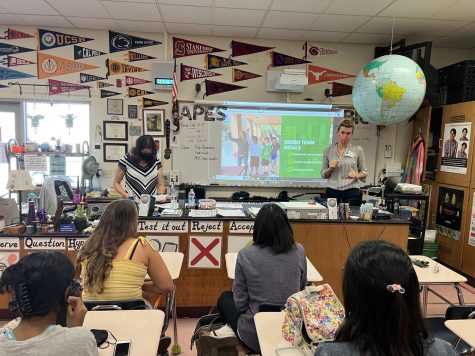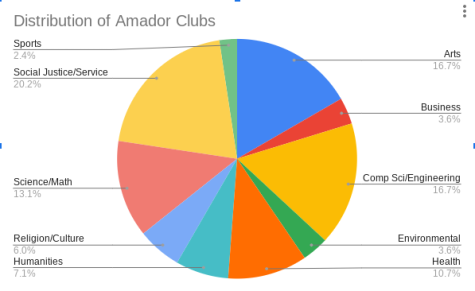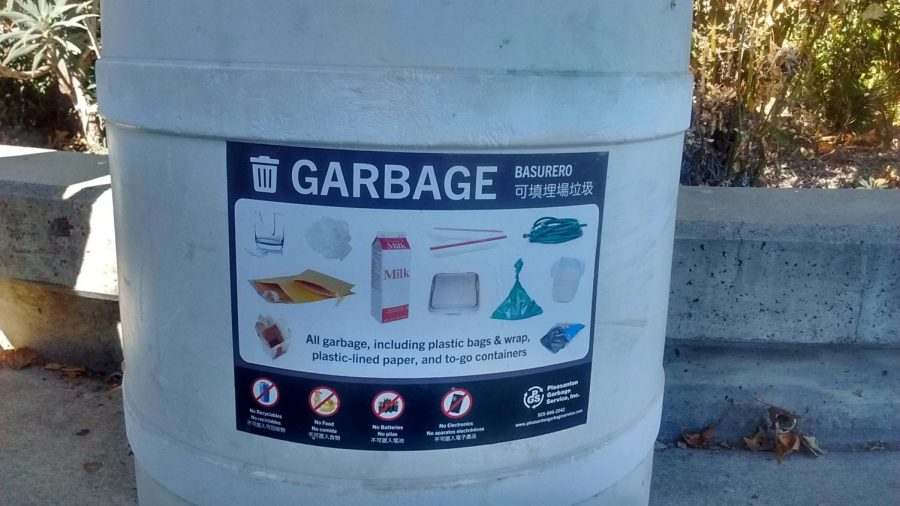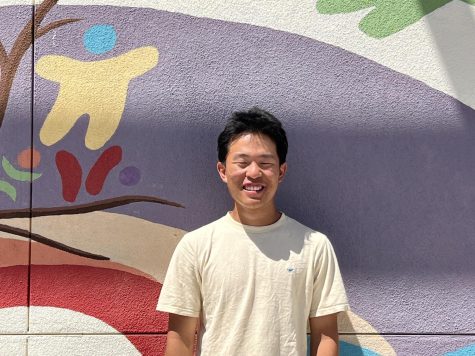Awareness isn’t enough: environmental action is needed at Amador
Amador’s local leaders have been focusing on trash tracking to lower the waste problem at Amador.
September 15, 2022
Amador has nearly three thousand students, and in order to reduce the student body’s carbon footprint, initiatives like Go Green need to be implemented at a larger scale at Amador.
The Go Green Initiative is a large-scale program for high schoolers in the Tri-Valley Area. Their mission is to help fund environmentally friendly projects like recycling, water conservation, gardens for schools.
Amador’s Go Green Initiative has been focused on waste tracking, where local leaders help to input waste data and estimate bin content at school.
The Local Leaders club is directly tied to the GGI. As an offshoot of the grassroots movement, Local Leaders has a branch at both Foothill and Amador as an extracurricular club. Their focus is to educate the high school audience on environmental friendliness and awareness.
“We’re aiming to spread awareness about environmental issues and educate them. That way, they can live a more sustainable life. Policy advocacy is a thing where we talk with city officials. So there’s the potential for actual change,” said Regina Rajbanshi, Treasurer of the Local Leaders club.

Go Green itself largely focuses on education and creating sustainability plans. Out of the majority of its resources, they are all largely pamphlets and educational plans.
“I feel like to some extent we do create some change because people are going to think before they throw away trash, thinking, ‘Am I sorting this correctly?’” said Rajbanshi.
The problem lies in funding. Go Green lacks the big money for grants and projects to improve recycling facilities and waste management on campuses. The best they can do currently is encourage students to voluntarily recycle and conserve food and spread awareness.
“But we’re not gonna create the kind of change that we can say all the time. For example we had bin monitors a while back. The idea was great, that we’re gonna have people standing in front of the trash can to make sure everyone sorts correctly. But it didn’t happen,” said Rajbanshi.
It’s not that the schools lack funds and money for the type of projects necessary. There simply isn’t enough board or student interest in maintaining green campuses.
The most recent student board meetings have never addressed the issue of wasted food or resources, instead focusing on other issues. By bringing the issue to school boards and people who have power to implement policy, we can reach green campuses easier.
After the retirement of the Botany teacher, Clif Simms, the greenhouse has fallen into disrepair and been completely scrapped.
Students rarely correctly recycle. They rarely even dispose of their own trash, leaving it out to taint the campus.
“People know how to recycle, but some people don’t care. We focus on the people who don’t know much about recycling and sorting but are willing to do it. The ones who already do it and know everything don’t need our help, and the ones that don’t care are out of our reach,” said Rajbanshi.
While many problems exist on our campus like safety, stress, academics, and representation, a clearly underrepresented issue is environmental action. Being aware isn’t enough. Action is needed to prevent further destruction of the environment.
The area into which the movement seems to focus heavily here at Amador is spreading awareness and increasing knowledge. In reality, action is needed to fund these proposals that would actually reduce carbon footprints, like improved waste collection, water conservation, and food policies.
Enforcement of policies requires money and checks. This is observable on a national scale- pro environmental legislation is costly to corporate groups, and so they get struck down by capitalist interests.
Lack of student interest also is part of the problem. Out of the 84 clubs at Amador, only three focus on environmental action to preserve the ecosystem, climate, or Earth.

Ultimately, economic opportunity in the real world trickles down to high school as well. Majors with high starting salaries like computer science, engineering, and medical work have a large proportion of clubs. Environmental science is an exception to the high salary STEM majors, and correlates to a lower proportion of clubs.
In order to properly tackle the issue of environmental problems that the Pleasanton community and the worldwide community faces, humanity will need to sacrifice some financial resources and opportunities. Hard cash and real money needs to be the solution to our school’s and the world’s trash. It’s a small price for a large world.















